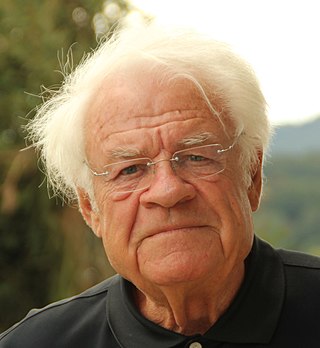Life and career
Full Professor 1969–2003 (Karlsruhe Institute of Technology, KIT = University of Karlsruhe, Germany), now Emeritus. President 2005-8 (now Honorary President) of the International Institute of Philosophy (I.I.P.), Paris, (i.e., the world academy of philosophers). President of the German Philosophical Society 1991-3, Vice President 1998–2003 of the International Federation of Philosophical Societies (Fédération Internationale des Sociétés de Philosophie, FISP).
Visiting and honorary professorships in Argentina; Austria; Brazil, Chile, Hungary, India, Japan, Norway, Russia, Switzerland, Venezuela and the United States, incl. distinguished ones at University of Illinois 1973, University of Massachusetts 1976, TCU, Texas, 1987.
Studies in mathematics, philosophy, sport science (physical edu.) at the University of Freiburg, 1955-7, and until 1961 at the University of Kiel.(there also sociology and psychology), advanced studies in cybernetics, Technical University of Berlin. – Dr. phil. = PhD at Kiel Univ. 1961. His Dissertation on the modern Olympic Games has been the first comprehensive social philosophical study of the modern Olympics in the social sciences. Habilitations (advanced doctorates) at the Technical University of Berlin 1966 (in philosophy) and 1969 (for sociology), Assoc. Prof. 1969. – Full Professor at Karlsruhe Univ. 1969–2003. Dean of the School of Humanities and Social Sciences 1973-5. Dean 1993–2006 of the European Faculty (now European Academy) of Land Use and Development.
Lenk started out with the philosophy of science and the foundation of logics (notably his habilitation thesis on the Critique of Logical Constants, 1968) and later on, since 1978, included epistemology and pragmatic methodology of the social and natural sciences, technology+ economics, neuroscience and the philosophy of language in several books on Interpretative Constructs (1993) and Schema Games (1995). Since 1978 he developed his basic epistemological methodology of what he calls “methodological (scheme-)interpretationism” focused on a pragmatic and constructive realism a bit similar to Putnam's internal realism and much earlier and more general than the according recent perspectivism in US philosophy of science. Since then he extended and differentiated Wittgenstein’s later conception of “language games” toward “schema games” connecting and activating these with neuroscientific findings and analyses (for neurophilosophy cf. his book Consciousness as Scheme-Interpretation 2004).
In applied philosophy he published rather many studies and books on performance and achievement (not only in sport), social responsibility (see, e.g., Mitcham's Encyclopedia on Science, Technology and Ethics (2005, 2015 2nd ed.)), and social philosophy of technology. Lately, he turned to several books on Concrete Humanity 1988 and sustainability 2009 and Philosophical Anthropology 2010, 2013. Lenk's autobiographical memorial recollections on Ratzeburger Goldwasser (Ratzeburg’s Golden Waters) 2013 and Golden Day at Lago Albano 2015 present a lively overview of his athletic and academic career stages (except the three US visiting professorships).
Lenk's academic specializations comprise amongst others: epistemology, methodology and philosophy of science, incl. social sciences and technology, systems theory, neurosciences, anthropology, theoretical sociology, action theory, philosophy and psychology of creativity, achievement motivation and group dynamics, neuro- and moral philosophy as well as applied ethics, sport science and philosophy of sport.










